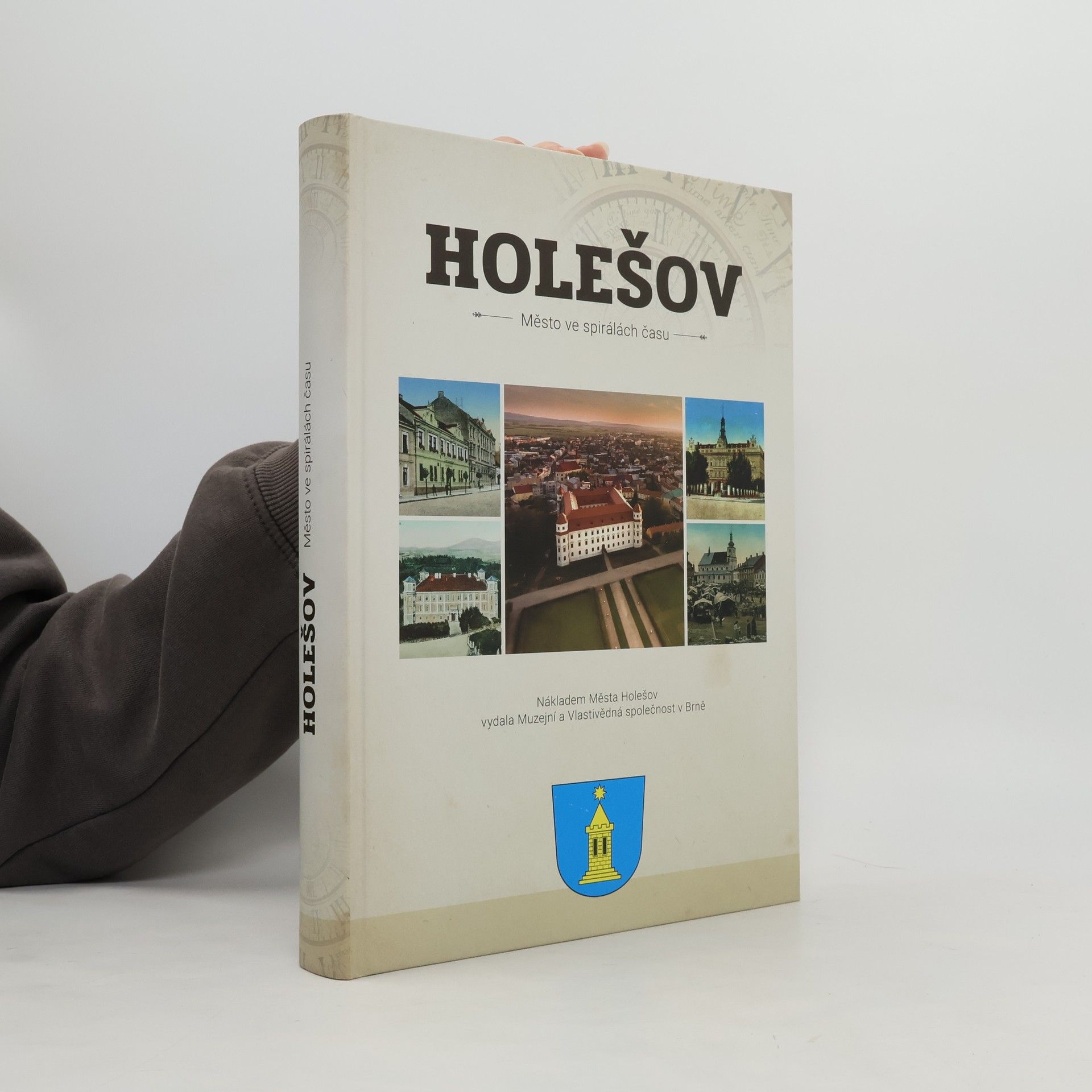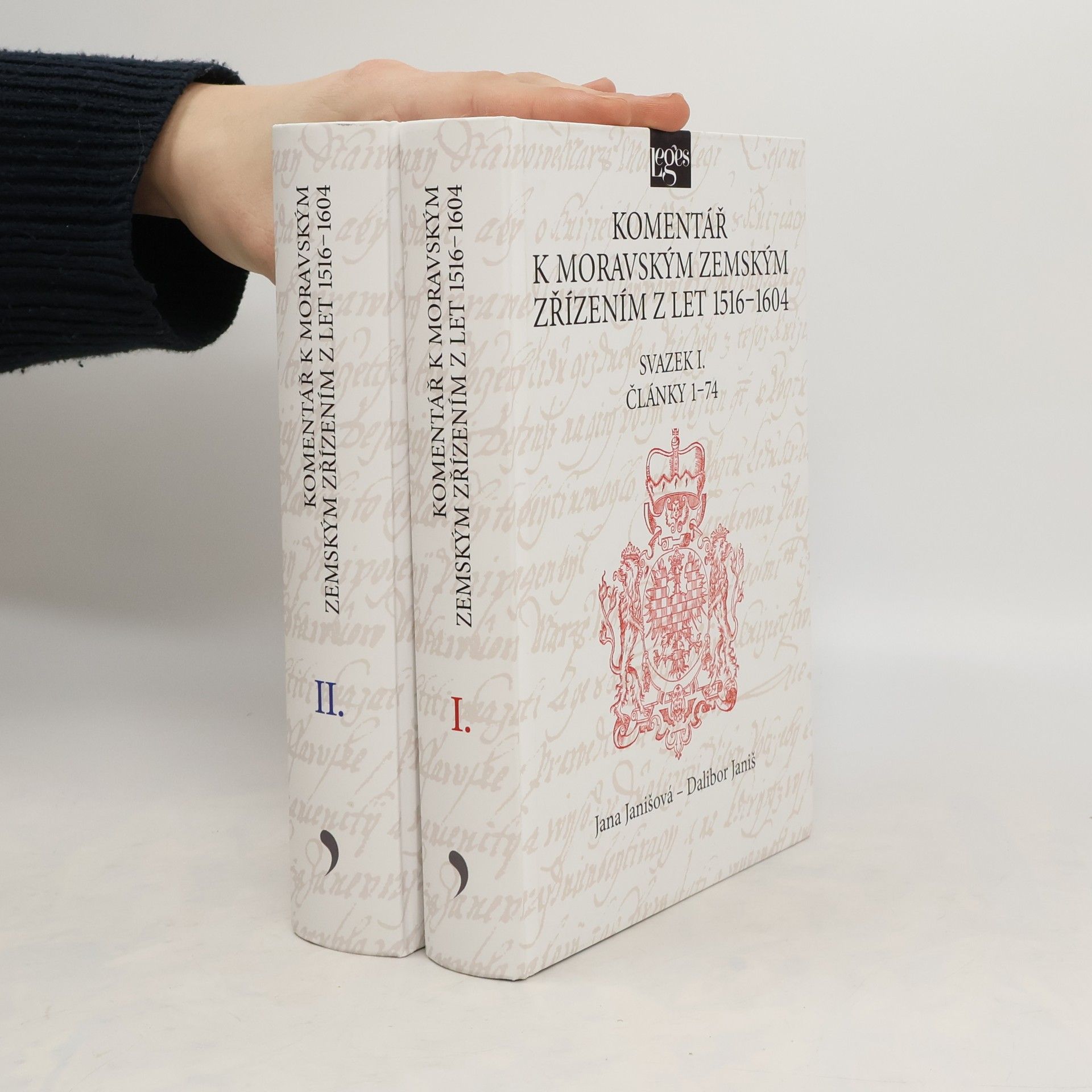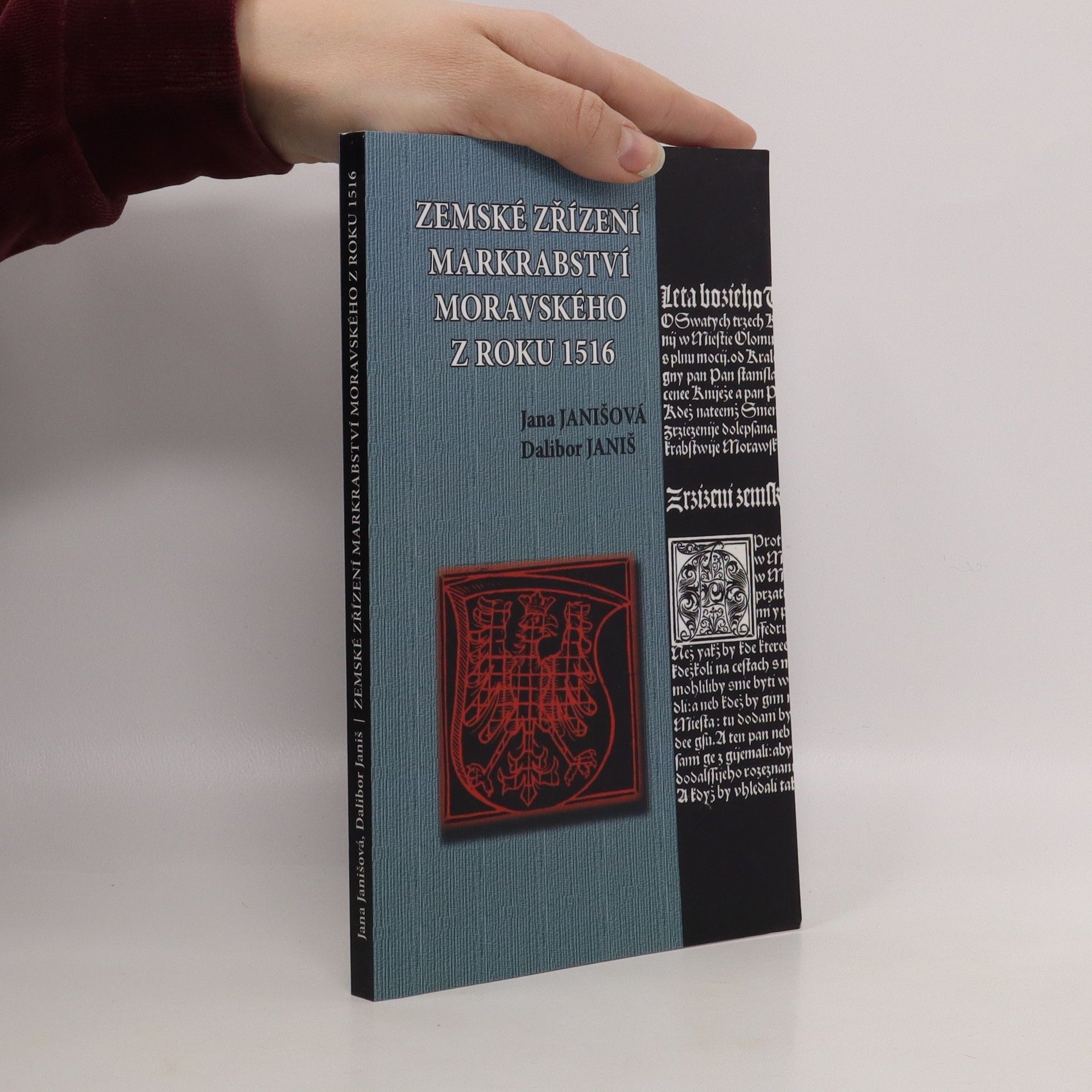Publikace přináší analýzu landfrýdů jako jednoho ze základních pramenů zemského práva na Moravě v období od konce 14. do začátku 17. století. Ve 14. a 15. století landfrýdní smlouvy uzavírané mezi panovníkem a stavy byly především reakcí na válečné události. Později v 16. a na začátku 17. století landfrýdy zůstaly zachovány a staly se fakticky policejními řády a byly začleněny do tištěných zemských zřízení (1516 až 1604). Vznik a vývoj moravských landfrýdů jako důležitého pramene pro právní, politické a sociální dějiny je interpretován v kontextu vývoje této instituce v rámci zemí České koruny (Čechy, Slezsko, Lužice) a také v kontextu obdobných pramenů ve střední a západní Evropě
Dalibor Janiš Book order (chronological)

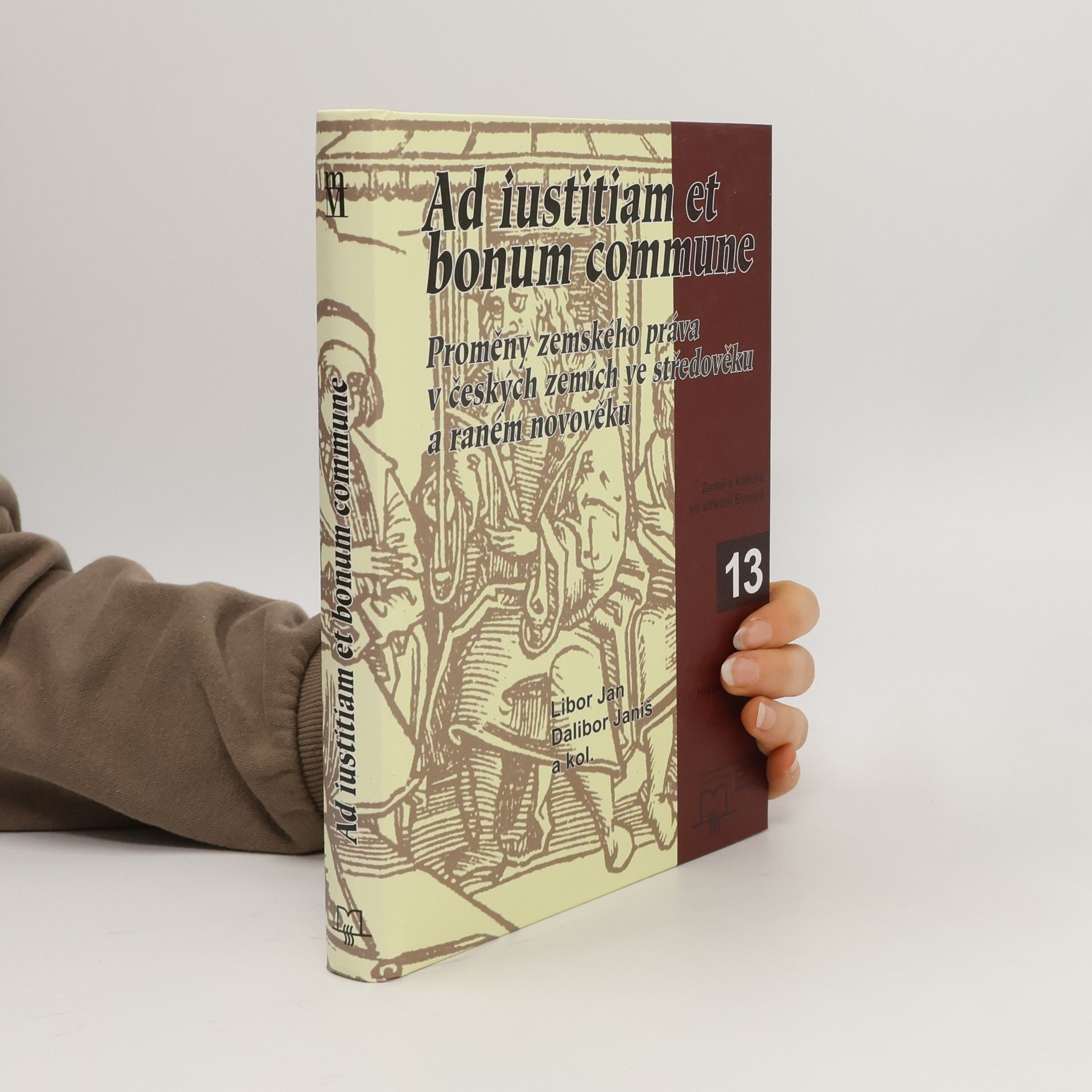


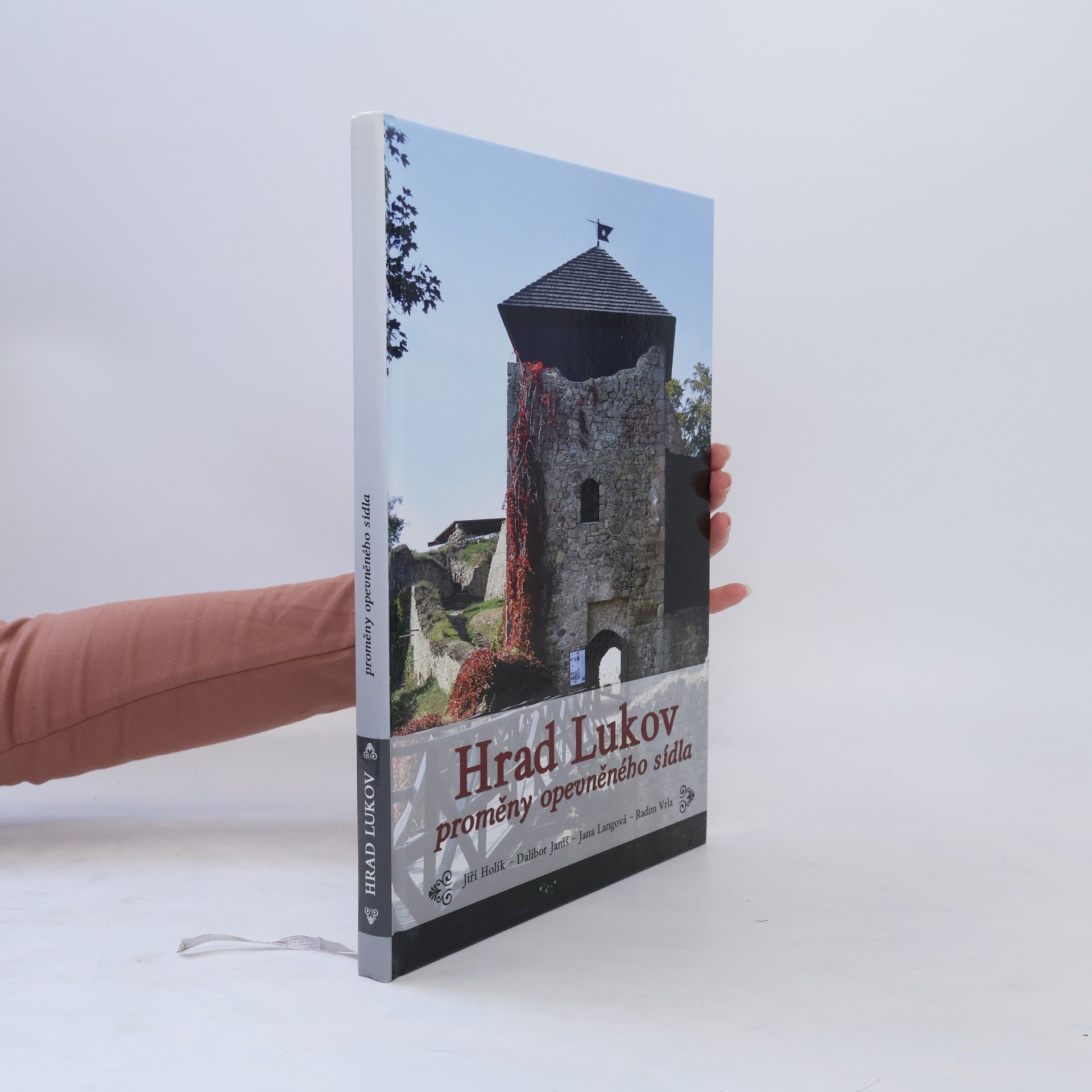


Hrad Křídlo. Historie, stavební vývoj a archeologie zříceniny šlechtického sídla v Hostýnských vrších
- 216 pages
- 8 hours of reading
Zřícenina hradu Křídlo, ležící na severozápadním okraji Hostýnských vrchů, představuje jeden z pozoruhodných objektů středověké architektury východní Moravy. Dějinám hradu, jeho stavebněhistorickému vývoji a archeologickým nálezům byla opakovaně věnována dílčí pozornost v různých pracích věnovaných hradní architektuře na východní Moravě. Intenzivnější zájem o hrad Křídlo vyvolaly průzkumné a záchranné práce, zahájené v roce 2005 a organizované Národním památkovým ústavem (územním odborným pracovištěm v Kroměříži) v kooperaci s vlastníky zříceniny hradu. Cílem monografie je podat souhrn všech dostupných poznatků k dějinám a stavebnímu vývoji hradu Křídla. Pozornost je věnována písemným i archeologickým pramenům. V průběhu záchranných prací a při přípravě této monografie byla provedena také detailní dokumentace hradního areálu, stavebních konstrukcí a architektonických prvků. Z lokality pocházejí také archeologické nálezy pravěkého a středověkého stáří, kterým je věnována samostatná kapitola. Samostatná pozornost byla věnována také stavebnímu materiálu hradu Křídla a geologii jeho okolí. Poslední kapitola je věnována problematice památkové péče a rekapituluje záchranné práce realizované od roku 2005.
On Revision
- 208 pages
- 8 hours of reading
A trusted editor turns his attention to the most important part of writing: revision.
Syllabus
- 232 pages
- 9 hours of reading
How redesigning your syllabus can transform your teaching, your classroom, and the way your students learn Generations of teachers have built their classes around the course syllabus, a semester-long contract that spells out what each class meeting will focus on (readings, problem sets, case studies, experiments), and what the student has to turn in by a given date. But what does that way of thinking about the syllabus leave out—about our teaching and, more importantly, about our students’ learning? In Syllabus, William Germano and Kit Nicholls take a fresh look at this essential but almost invisible bureaucratic document and use it as a starting point for rethinking what students—and teachers—do. What if a teacher built a semester’s worth of teaching and learning backward—starting from what students need to learn to do by the end of the term, and only then selecting and arranging the material students need to study? Thinking through the lived moments of classroom engagement—what the authors call “coursetime”—becomes a way of striking a balance between improv and order. With fresh insights and concrete suggestions, Syllabus shifts the focus away from the teacher to the work and growth of students, moving the classroom closer to the genuinely collaborative learning community we all want to create.
Holešov
Město ve spirálách času
Obsáhlá monografie přibližující kodifikaci zemského práva na Moravě v 16. a 17. století. Monografii provází edice materiálů k revizi Moravského zřízení zemského z roku 1604 a z let 1605–1620. Publikace navazuje na předchozí publikaci Zřízení zemské markrabství moravského z roku 1604. Je bohatě ilustrována a provázena nezbytným aparátem.
Hrad Lukov : proměny opevněného sídla
- 182 pages
- 7 hours of reading
Monografie věnovaná dějinám a stavebnímu vývoji hradní zříceniny Lukov v okrese Zlín.
Hrad Šaumburk, hrad Klenov a osídlování horního Pobečví ve středověku
- 70 pages
- 3 hours of reading
Zemské zřízení Markrabství moravského z roku 1516 : (počátky kodifikace zemského práva na Moravě)
- 196 pages
- 7 hours of reading
